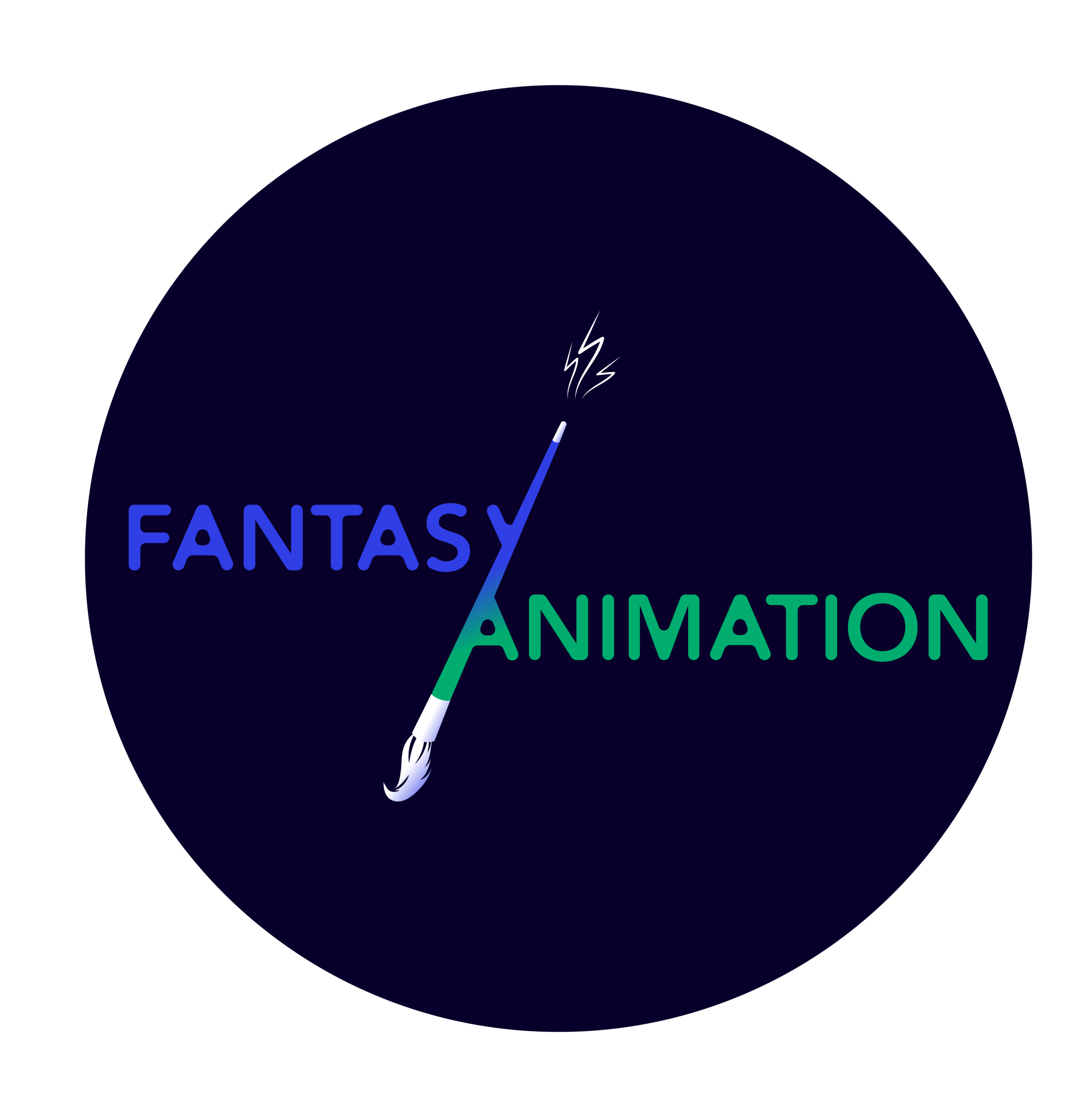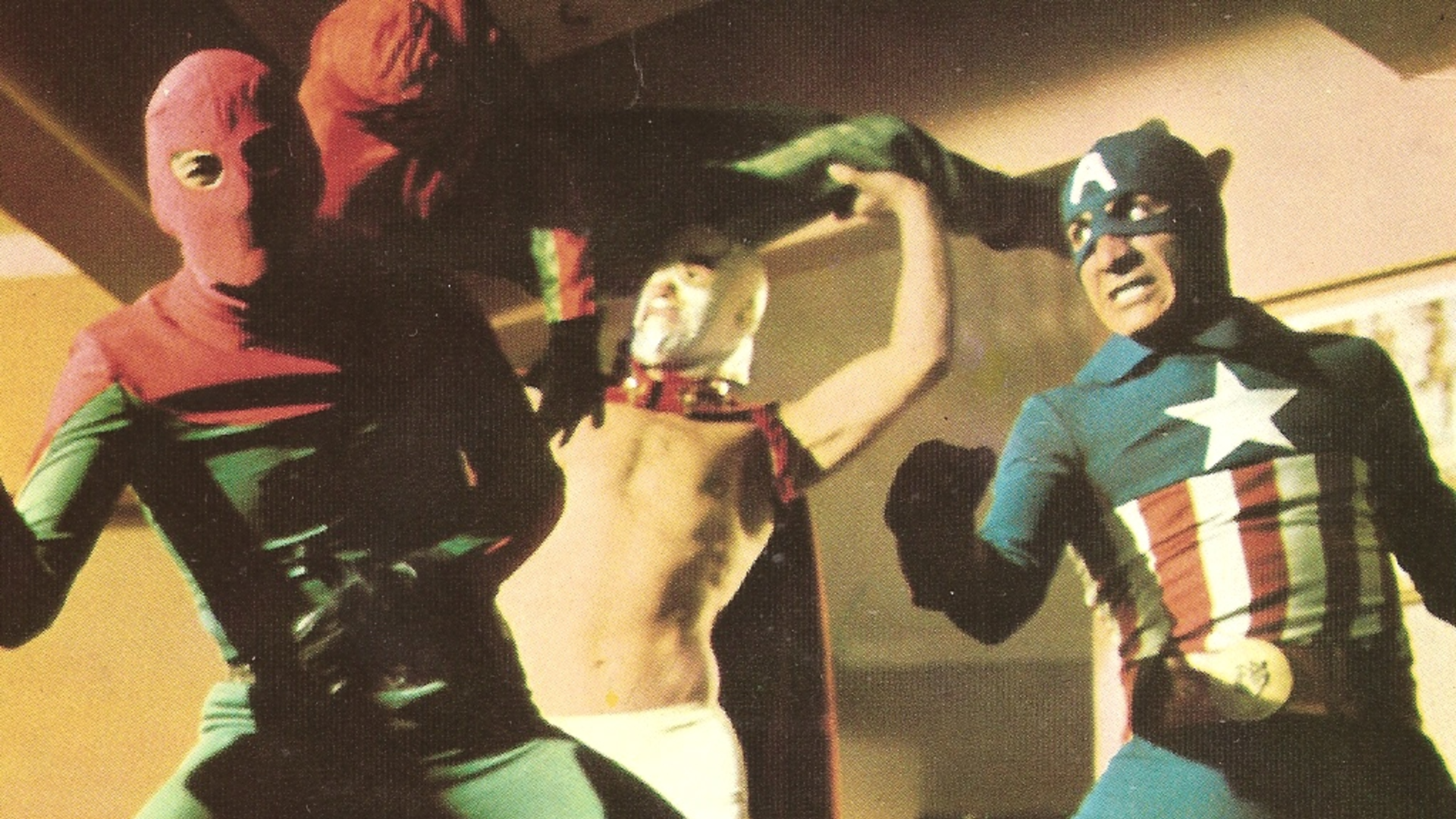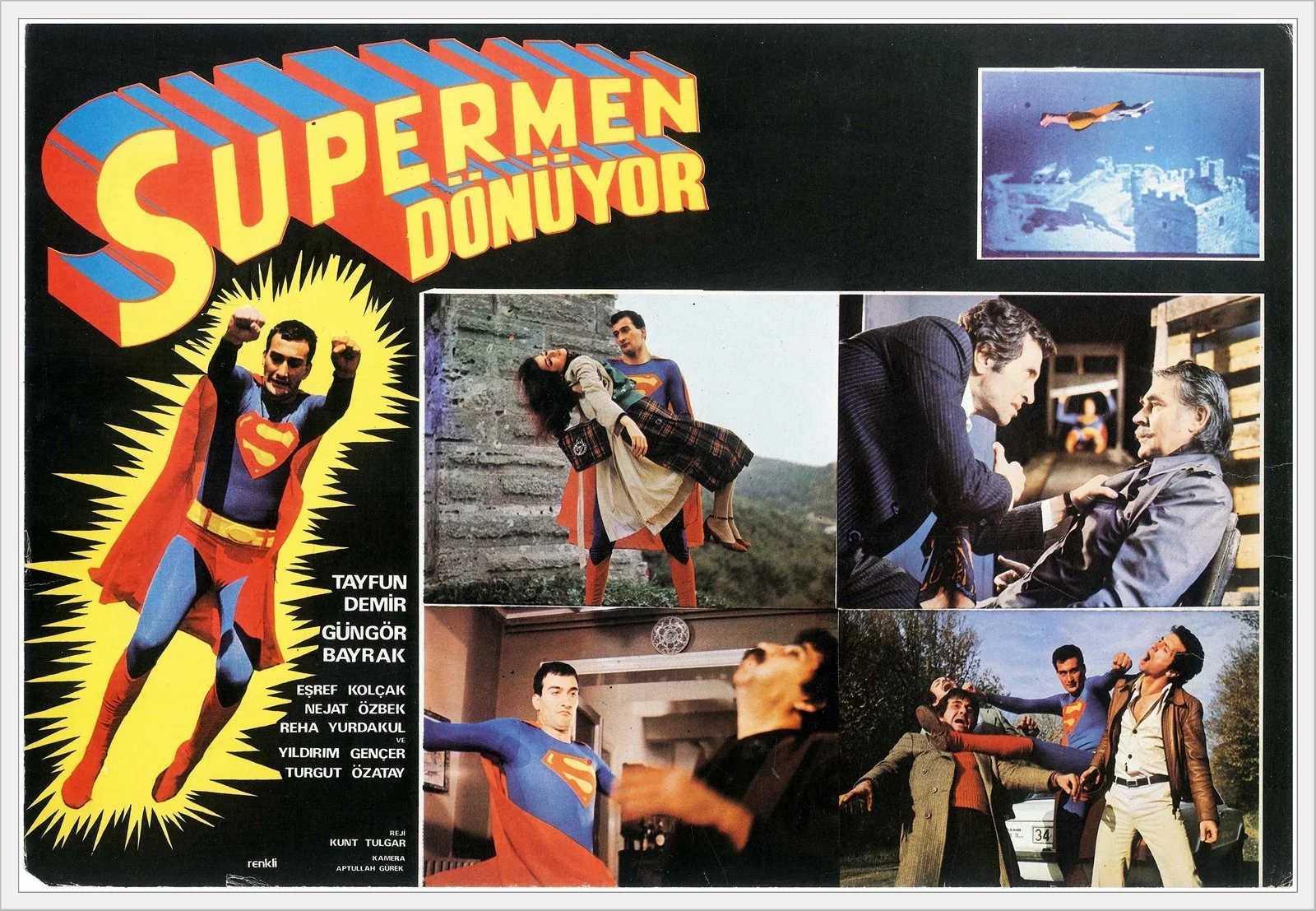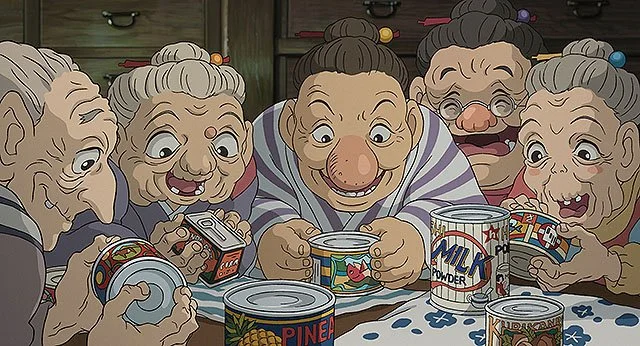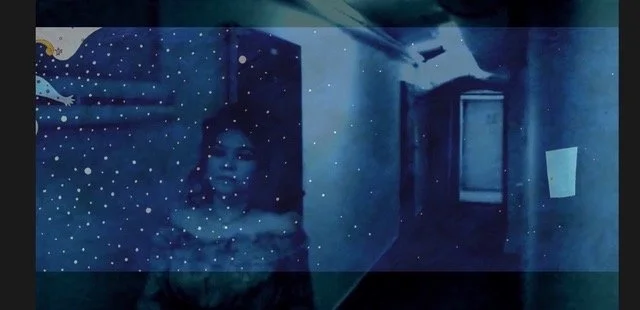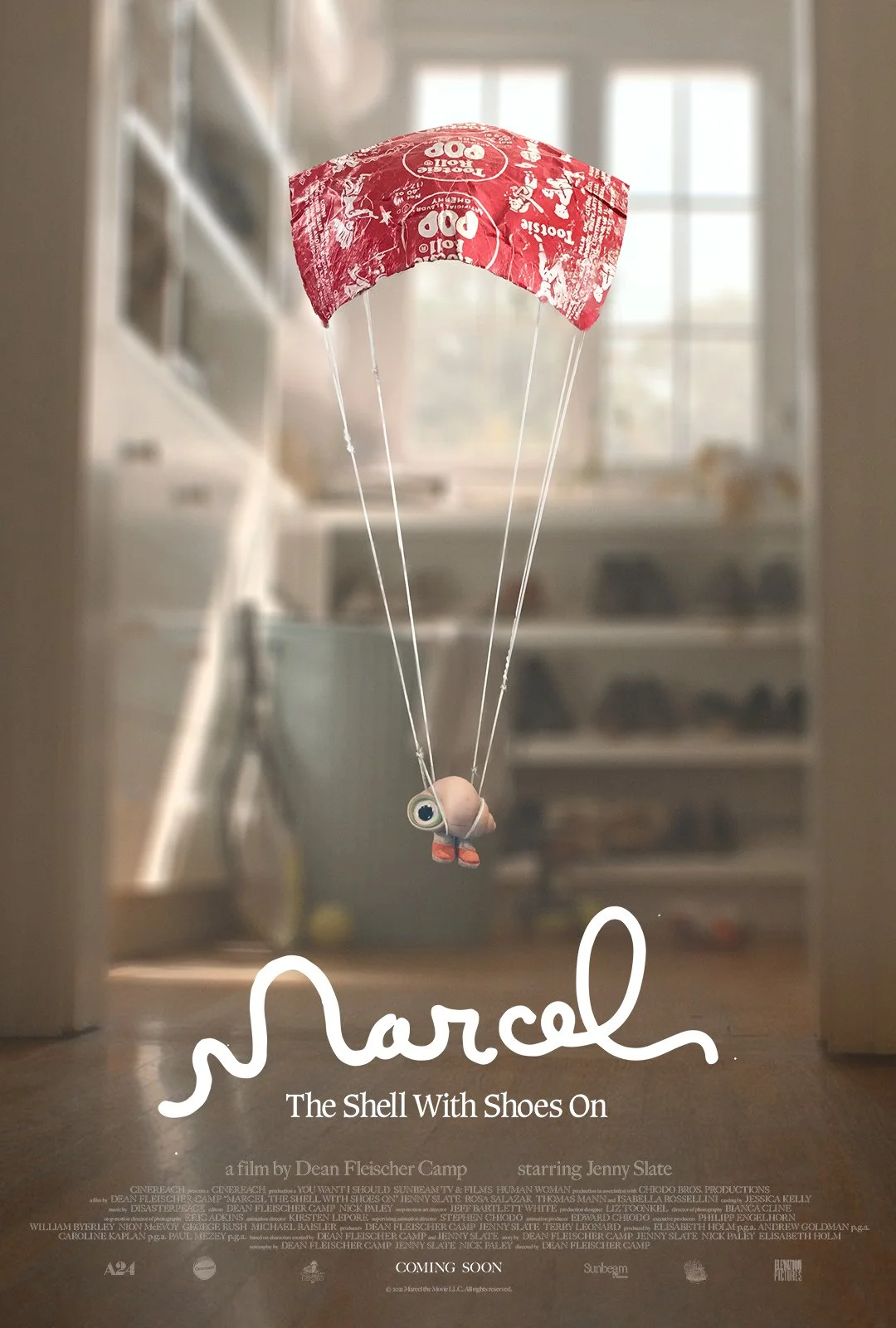In the previous blog post, I introduced a couple of eccentric films that have since been celebrated as cult classics. Rumour has it that The Man Who Saves the World, mentioned in that post, has been selected as one of the ten worst films ever made and is taught at universities in the US as an example of how not to make a film.
Read MoreBelieve it or not, Yeşilçam, the studio system of Turkey, which became dominant from the 1960s to the 1980s, essentially introduced classical cinema to Turks. It drew its production systems from Hollywood—big producers familiarized themselves with the studio structure in Los Angeles and brought the same system back home—but localized the content to reflect the specific experiences of Turkish society.
Read MoreHayao Miyazaki’s The Boy and the Heron (2023) is a beautiful bewilderment. It is the auteur’s innermost introspection on what it means to live, or exactly, how we live. Miyazaki is no stranger to isekai (異世界) world-building with his idiosyncratic imagination. His films combine a sense of the real-world situation with irreal events. The Boy and the Heron is no exception. However, as many reviews have already noted, this film is not an easy ride.
Read MoreMiyazaki Hayao’s newest film, The Boy and the Heron (Kimitachi wa dou ikiru ka『君たちはどう生きるか』lit. “How do you live?”) is a Studio Ghibli film about personal growth in a world you cannot control. It’s a tad amusing, too, if you are reading this review before watching the film. I cannot say whether knowing anything before viewing the film is better, as the studio intended, or if context (and warning) are warranted to level any preconceptions based on Ghibli’s and Miyazaki’s reputations or general hype. In either case, perhaps it is best to view the film free of expectations beyond the obvious: beautiful, hand-drawn Ghibli animation.
Read MoreScreen adaptations of the story about the boy who never grew up are plentiful, and there’s certainly a pleasure in plotting the variations and distinctions of each version. Contrary to the idea that a sequel, another retelling, or another iteration, suggests creative bankruptcy might it instead suggest new things of interest to find in each successive contribution to a particular franchise or filmography.
Read MoreThe focus of these notes is the animated feature film, Strange Magic (Gary Rydstrom, 2015). Based upon a screen story by George Lucas, who also executive produced the film, it was the last of a group of narratively unconnected animated features that he had an involvement with since the 1980s: namely, Twice Upon A Time (John Korty & Charles Swenson, 1983), The Land Before Time (Don Bluth, 1988), and Star Wars: The Clone Wars (Dave Filoni, 2008).
Read MoreWith the celebration this month of the 30th anniversary of Jurassic Park (Steven Spielberg, 1993), the exploration of dinosaurs in popular culture takes centre stage, as this film and its franchise has achieved a vast global impact. But whilst dinosaurs appear at the forefront of popular culture (do they ever really leave?), we are currently considering the possibility of our own extinction event with the increasingly alarming climate news from North America.
Read MoreGhosts (BBC, 2019-) emerged from the creative troupe behind the award-winning British children’s programme Horrible Histories (2009-2014), which across multiple seasons used some of the best sketch comedy since Monty Python to explore both British and world history. Horrible Histories gently mocked attitudes in both the past and present, such as when a witchfinder (Jim Howick) touted his services in the manner of a modern-day injury lawyer’s TV commercial.
Read MoreAt the height of the Covid pandemic, my father, co-director Noel Williams and I, together with scholars and students of Japanology here in Tokyo, had ample opportunity to study and research a range of Japanese films, including a number of short Japanese animations.
Read More“Try your best, because that’s the best anyone can do,” says Sebastian J. Cricket, one of Pinocchio’s mentors in the film. This quote aptly encapsulates the moral of Guillermo del Toro’s Pinocchio (2022) (Fig. 1). An adaptation of the 1883 tale, Pinocchio transports the story to 1930s fascist Italy, firmly under the thumb of dictator Benito Mussolini.
Read MoreThe overall argument of Matthew Oliver’s Magic Words, Magic Worlds (2022) is that the style of epic fantasy shapes readers’ experiences in what he broadly calls “political ways” (26). Politics here includes the identity positions that authors, readers and characters can take, and empathy is discussed as one of the prime mechanisms facilitating such political involvement.
Read MoreThe Fall of 2022 marked the 9th year of running of The Factual Animation Film Festival (FAFF). Following the success of 2021, this time the festival maintained its hybrid format offering both in-person and online events. Those who found themselves in Berlin on September 24th, could attend a screening at local Z-inema moderated by Marina Belikova, one the festival’s producers.
Read MoreFor a long time, the work of Pixar Animation Studios was routinely presented as something of a gold standard for animation. A critical darling and box office juggernaut, Pixar’s run of early films from Toy Story (John Lasseter, 1995) to Toy Story 4 (Josh Cooley, 2019) were mostly unquestioned hits delivering nuanced meditations on everything from emotion to connection to self-actualisation.
Read MoreThe extraordinary life of Marcel, a one-inch tall talking shell, first began with three Youtube shorts in the early 2010s. He took the Internet by a storm: Jenny Slate’s crackling timbre, coupled with Dean Fleischer-Camp’s comically awkward script, drew over 31 million views. Now, after more than a decade of slumber, the shorts finally resurfaced, though this time in feature form.
Read MoreIn Fairy Tales of London, Hadas Elber-Aviram traces the way in which eight British authors combine London and the fantastic in various stories. Elver-Aviram argues that the fictions of Charles Dickens, H. G. Wells, George Orwell, Mervyn Peake, Michael Moorcock, M. John Harrison, Neil Gaiman, and China Miéville form a coherent, socially engaged, literary tradition that is intimately connected to modern urbanity.
Read MoreThe 1973 animated adaptation of Stefan Wul’s 1957 novel, Oms En Serie, recounts the enslavement and subjugation of the ‘Oms,’ (a term that is phonetically indistinguishable from the French word for men, hommes), by giant blue humanoid aliens, the ‘Draags.’
Read MoreAs someone who was schooled in the UK between the mid-1990s and mid-2000s, I don’t have extensive memories of the formal teaching of sex education, for such classes were embarrassingly few.
Read MoreI started researching the figure of Zatoichi the Blind Swordsman for specific reasons, which resulted in the book-length study, The Paths of Zatoichi (2021).
Read MoreThe very title of this new collection may leave experienced readers raising eyebrows. Arthuriana, after all, is a complex tradition with a long history of adaptation and remediation, so it might be difficult to imagine that a single book could cover two entire centuries of these practices and the texts they produce.
Read MoreThe world that children occupy is full of secrets, and is a world not shared with adults. It is one concerned primarily with fantasy and imagination. Every child has a right to occupy that secret world; it’s part of childhood development and is an important locator of child identity as a ‘non-adult’. As Chris Jenks tells us, “the child is familiar to us and yet strange, he or she inhabits our world and yet seems to answer to another” (2020, 3). The child exists in its own distinct world and separation and agency are at the core of that world.
Read More